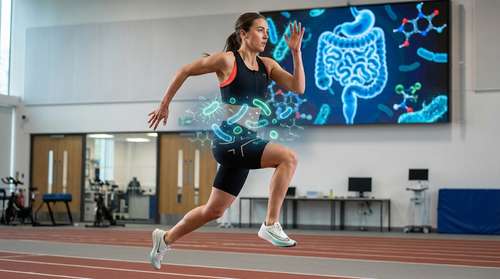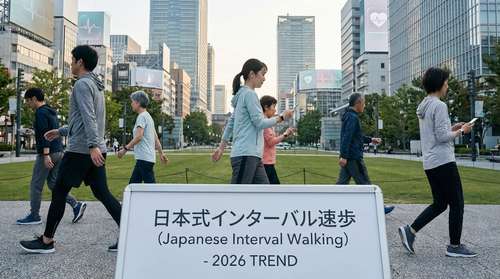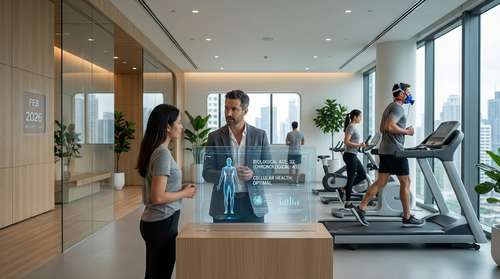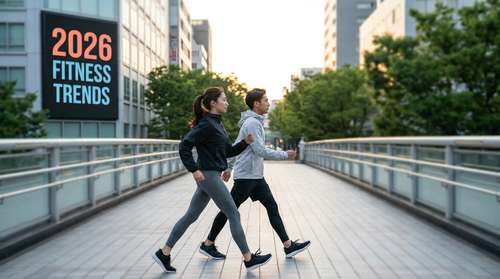Surprising as it may seem, seniors are gradually accepting technology more than many people speculated—and for good reason!
As we age, keeping abreast with the latest and littlest details on our health while also keeping it at its very best can feel like a full-time job and oftentimes, be overwhelming. Thankfully, with today’s technology, keeping healthy hasn't only become easier; it has also become more accessible and even fun.
These technologies include fitness-tracking wearables and apps on mobile phones that remind seniors to take their meds, giving tips on how to stay healthy and making it fun.
If you are a senior, about to be one or you have them around you, then this article is all you need to know.
Importance of Health Monitoring Apps for Seniors
Health monitoring apps and wearables can make a world of difference for seniors by helping them stay active and independent.
This is possible because senior health wearables keep an eye on important health metrics like heart rate, blood pressure, sleep patterns which can catch potential health-related issues early and manage them before they worsen.
That is to say the beauty of health monitoring apps is that they allow seniors to take control of their well-being without needing constant in-person checkups. For instance, detecting high blood pressure early can help prevent strokes or heart issues, while monitoring sleep patterns can reveal disruptions that might affect mood and energy levels.
Moreover, these apps often provide reminders for medication schedules, which is important for seniors managing multiple prescriptions since forgetting to use these medications can have serious effects.
Benefits of Medical Technology for Seniors
According to the National Centre of Biotechnological Information (NCBI), 17% of Americans that wear health tech are between 25 and 34 years old, while only 3.3 % of the senior population use wearable devices. However, this number has been projected to increase to over 98 million by 2060 (from 46 million in 2016).
Although the low acceptance of smart devices for seniors is due to several factors such as the perceived difficulty of using these devices, technology anxiety and resistance to change, the potential benefits of this technology and numerous and they include:
1. Professional Monitoring
Wearables and digital health tools for elderly are designed for continuous tracking and monitoring of vital signs such as heart rate, blood pressure, and blood oxygen levels, as well as activity levels, alertness, sleep, etc.

With smart wearable devices, seniors and their caregivers have access to real-time health data, which helps them monitor their health closely throughout the day without having to visit the hospital. Wearables also detect abnormalities in a person's health status and send alerts immediately for interventions in emergencies.
2. Fall Detection
Falls are the most common cause of accidents and injuries among seniors. However, wearables can save elders from a lifetime of (intense) pain, severe injury, costly expenses, and even disabilities caused by falls.
Fall detectors work with sensors that monitor movement and send an alert to a monitoring center or a family member when an oddity (fall) is noticed.
3. Fitness Monitoring
Wearable fitness monitoring devices play a role in helping seniors stay on top of their game when it comes to physical fitness and exercise.
They may provide motivational reminders, progress made with daily fitness goals, and exercise prompts when seniors have been inactive for too long to help them stay agile and physically fit.
4. Medication Compliance
Due to mental health decline, some elders may forget to take their medications as and when due.
Wearable medical devices address this challenge by sending reminders to help seniors take their medicines at the appropriate time and the correct dose.
5. Personalized Patient Care
Wearable technology offers healthcare professionals the luxury of accessing important health data without making time-consuming in-person appointments. They can also monitor and analyze changes in certain health conditions, such as Parkinson's and Alzheimer's, identify the unique needs of seniors, and formulate personalized, patient-centered care plans as appropriate.
6. Live Location Tracking
Senior care for seniors living with mental illnesses like dementia should include the use of GPS tracking devices to help locate seniors if they wander and enhance safety.
Usually, designated areas are pre-set on the device. If movement is noticed outside the designated areas, alerts are sent, and the healthcare personnel or caregiver takes immediate action.
7. SOS and Emergency Alerts
An emergency alert device is an essential wearable technology for seniors. They can be made in the form of devices worn on the wrist, such as smartwatches and belts. Seniors are taught what to do with the devices in emergencies such as fire outbreaks, sudden power outages, and other alarming situations that may be difficult to handle.
Apps That Support Health Monitoring
There are certain apps and smart devices for seniors that offer the benefits discussed above on a daily basis. Based on categories, we have:
1. Fitness Trackers

Apps like Fitbit and Garmin, are designed to track vital health metrics such as steps, heart rate, and sleep patterns. These devices help seniors stay active, promoting better overall health.
2. Fall Trackers
Smartwatches, such as the Apple Watch, offer more advanced capabilities like fall detection, ECG monitoring, and emergency SOS features. These features make it easy for seniors to stay safe and healthy, alerting caregivers or emergency responders if needed.
3. Medical Alert
Additionally, medical alert devices provide immediate emergency response in case of a fall or medical emergency. Devices like the Life Alert or Medical Guardian do this and are important especially for seniors who live alone.
Closing Notes
Ultimately, health-monitoring apps and wearable devices are transforming the way seniors manage their well-being. They not only encourage independence by offering real-time health data, but they also provide peace of mind to both seniors, their caregivers and loved ones.
With features like fall detection, medication reminders, and emergency alerts, technology is making it easier for seniors to stay healthy, safe, and active.
Also, as the adoption of these technologies continues to grow, it’s clear that the future of senior health care is bright, and will lead to more accessible healthcare and enjoyable services.




